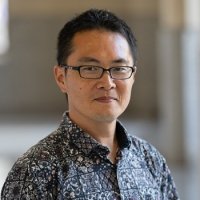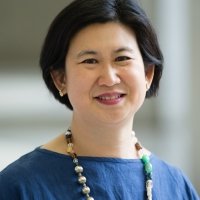Southeast Asia’s Anglophone Elites and U.S. Foreign Policy
Since the 1990s, Southeast Asia’s financial elites, entrepreneurs, and growing middle class alike have been cultivated by the Anglophone higher education system. Unlike previous generations that strengthened ties to the United States through military training, this newly emerging American-influenced elite should have emerged as a major asset for broader U.S. foreign policy objectives and influence in the region. Yet its influence on foreign policy has been overlooked and its implications too have been misinterpreted. Surprising too is the fact that the Anglophone trained elites have emerged as vocal critics of the United States in the region. In spite of U.S. business commitment to the region on the one hand and heightened competition with China on the other, the Anglophone network has not encouraged their countries to side with the United States. Join us for an online discussion about the dynamics of Southeast Asia’s Anglophone elite network and relations with Washington, with a particular focus on Indonesia and Thailand.
About the Speakers
Nobuhiro Aizawa is a Japan scholar with the Wilson Center’s Asia Program and an associate professor of Kyushu University’s Department of Cultural Studies. He specializes in the fields of Southeast Asian Politics, International Relations, Overseas Chinese Studies and Comparative Politics. Previously, he was a researcher at the Institute of Developing Economies at the Japan External Trade Organization (JETRO). He also has worked at the National Graduate Institute of Policy Studies and has been a Visiting Fellow at both Cornell University and Chulalongkorn Universities. He received his BA in law from the University of Tokyo and PhD from Kyoto University’s Graduate School of Asia and Africa Area Studies.
Irene S. Wu is a former fellow of the Wilson Center and adjunct professor at Georgetown University. Focusing on measuring soft power in the international system, she recently published a chapter on international education and soft power in Cultural Values in Political Economy (forthcoming Stanford University, 2020) and a chapter on China’s regulatory frameworks in Policy, Regulation and Innovation in China’s Electricity and Telecom Industries (Cambridge, 2019). She is also author of Forging Trust Communities How Technology Changes Politics (Johns Hopkins University, 2015), that featuring case studies of how both activists and governments have exploited the latest communications innovations toward their own political goals. She is also a senior analyst in the Office of Economy Analysis at the U.S. Federal Communications Commission. She received her B.A. from Harvard University and Ph.D. from Johns Hopkins University’s School of Advanced International Studies.
Shihoko Goto is the deputy director for geoeconomics and senior associate for Northeast Asia with the Wilson Center's Asia Program. She is a contributing editor to The Globalist magazine and a columnist for The Japan Times. Prior to joining the Wilson Center, she spent over a decade as a financial journalist for Dow Jones News Service and United Press International focusing on the international political economy. She was also previously a donor country relations officer at the World Bank. She received a BA in modern history from Trinity College, University of Oxford and an MA in international political theory from Waseda University.
Summary
In his online presentation, Japan Scholar Nobuhiro Aizawa presented his research on the Southeast Asian elites. The relationship between Southeast Asia and the United States have been particularly strong through a security partnership since the end of World War II. In recent years, however, U.S. influence in the region has been on the decline while China’s is on the rise. Still, when it comes to training the elites, the U.S. educational system continues to dominate the scene. Data show too that there is an increasing number of students from ASEAN countries studying in the U.S, and the level of study abroad is higher than other regions. The U.S. plays a very important role in human resources development in Southeast Asia. The percentage of international military education and training funding to Southeast Asia has been decreasingly gradually, but the percentage of personnel who have studied in the United States is still high in Thailand and Indonesia in particular.
Indonesian system allows old and new elites to rise and fall without disrupting the system. By creating a platform whereby old and new elites can co-exist, those U.S. educated elites in rival campaigns do not have to demonize their rivals. The U.S. educated elitist circle also strengthens the intra-ASEAN talks as the representatives all talk in English, which makes it much easier to communicate with each other given that all SEA countries hold a distinct national language. There are benefits for the U.S. too. The overseas Chinese of Southeast Asia are mostly Anglophones and have more American contacts than Chinese contacts, which also serves the U.S. strategic influence in the region. Also, because of U.S. intellectual hegemony, when financial crises hit the ASEAN nations, the blame was put onto the U.S. administration, but not the country itself. Such buffer zone will not happen in the Chinese case, where the wrongdoings of Beijing will directly hurt the country itself.
The politics of the U.S. educated elites also face some challenges. First, there is a meritocracy trap, which will divide the elites and the middle class in the region. Countries with a growing number of the middle-class citizens have felt the squeeze of elites due to income inequalities. As the U.S. and elites are demanding capitalism and free trade, while the middle class fears an increasing inequality, these countries may elect regimes that are anti-American, such as the regime in Philippines. Moreover, due to the U.S. education, the SEA leaders tend to go for market logic instead of geoeconomic strategies. For example, the leaders all allow Huawei to operate 5G in their borders against DC’s wishes.
Aizawa recommended the United States to focus on reaching out to the middle class of the region. The United States should provide more legal and technological trainings and benefit the middle class in the region to make sure they will be less likely to suffer from inequality associated with the U.S.-led capitalism and thus appreciate the U.S. leadership. He also called for Washington to expand on the U.S.-ASEAN summit on human capital, which will reinforce the U.S. political acknowledgement in the region. An alliance system should be promoted to foster human development, not just military training.
In response to Aizawa’s comments, former Wilson Center fellow Irene Wu pointed out the cultural advantage that the United States has over China in the region. ASEAN citizens continue to go to the United States to study abroad and even to immigrate, while U.S. popular culture far outpaces that from China. Many Southeast Asians like to travel in China, but seldom choose to study or live in the country. She noted that the middle class will be increasingly anti-U.S. trained leaders as they see this as rising capitalism and technological substitution. Wu concurred with Aizawa on the point that the United States should increase the level of technological training for the middle class in the region so that they will not be the victim of income inequality.
Event Summary Prepared by Lesley Lu
Speakers

Associate Professor, Kyushu University (Fukuoka, Japan)

Adjunct Professor, Communications, Culture and Technology Program, Georgetown University
Moderator

Hosted By

Indo-Pacific Program
The Indo-Pacific Program promotes policy debate and intellectual discussions on US interests in the Asia-Pacific as well as political, economic, security, and social issues relating to the world’s most populous and economically dynamic region. Read more
